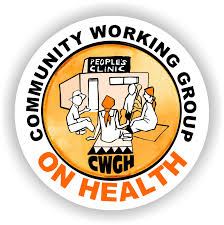The ZWL$54,7 billion allocated to the health sector in the 2021 budget although ranking in the top five sectors prioritised by the government still remains inadequate in the face of Covid-19 pandemic, Community Working Group on Health (CWGH) has said.
Zimbabwe has to date recorded over 9, 000 Covid-19 cases including more than 270 deaths since the first case was detected in the country in March.
“Despite the challenging economic environment, the new dispensation has over the last two years been providing significant resources to revive the health system in areas such as reproductive, maternal, new-born and adolescent health and nutrition services,” said Finance and Economic Development Minister, Mthuli Ncube, while presenting the 2021 national budget in Harare Thursday.
“However, the Covid-19 pandemic has put a spotlight on the challenges in the healthcare system and infrastructure, from shortages of testing and medical supplies to access of health services for underserved populations. Infrastructure gaps still exist in service delivery and availability, as well as readiness of health facilities to provide basic health-care interventions in the country.
He said the health crisis provided useful lessons for longer-term reforms required to build greater resilience in the country’s health systems against any future shocks.
“Building on the country’s resilience to deal with health crises through stringent Public Health and Social Measures (PHSM) as noted by a survey carried in August 2020, the 2021 national budget will endeavour to increase the allocation to the health sector so that it gravitates towards the Abuja target of 15% of national budget to ensure the country achieves the desired health outcomes,” he said.
“In this regard, ZWL$54.7 billion has been allocated to the Ministry of Health and Child Care.”
However, CWGH executive director, Itai Rusike told CITE the amount, which is about 13 percent of the total budget, remains below the level required for the delivery of quality health services.
“While government has shown signs of prioritising health, the overall level of public spending is still low relative to need,” said Rusike.
“Health thus needs to continue to be prioritised and the share of gross domestic product needs to be maintained. Despite strong expression of the social priority placed on adequate standards of health and health care we note that the budget allocation for health did not increase in real terms, (although it may have shown a nominal increase) and did not even begin to match that priority placed on health by a wide spectrum of society.”
Rusike said the government should as a starting point make health delivery a top priority if it is to save its health institutions from imminent collapse.
“The state of health services near collapse is directly related to the government misplacing its priorities in not allocating adequate resources to the health sector,” said Rusike.
“The 2021 budget allocation to the health sector is not adequate in the face of Covid-19 pandemic, rising disease and mortality levels, particularly those allocations to preventive diseases. The massive increase in essential drug costs, drop in drug purchase by low income people and fall in the use of essential health care services due to cost barriers.”
He added: “We hope that the Ministry of Health and Child Care will use the allocated funds as efficiently and effectively as possible in order to maintain good health standards in the face of collapsing health services.”

